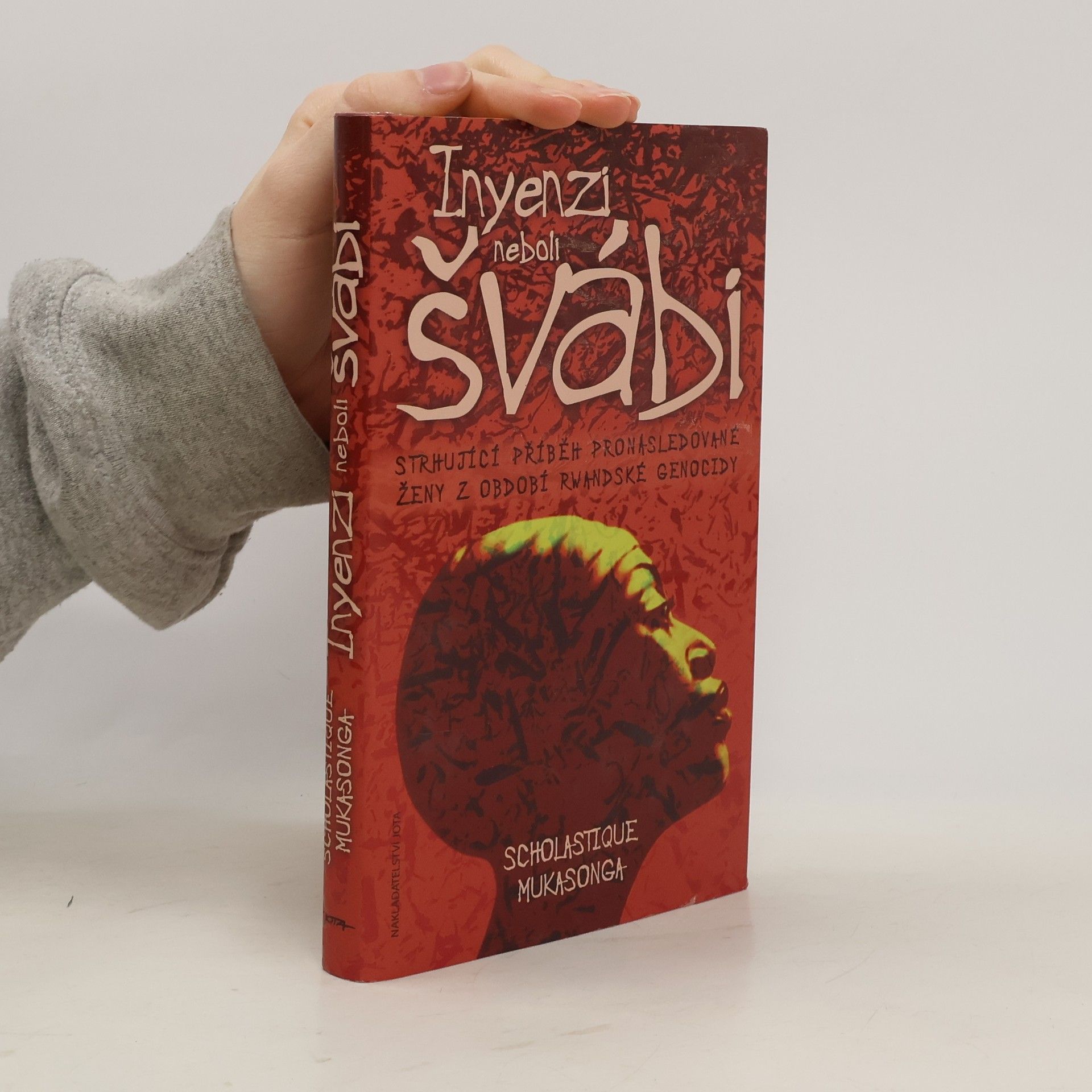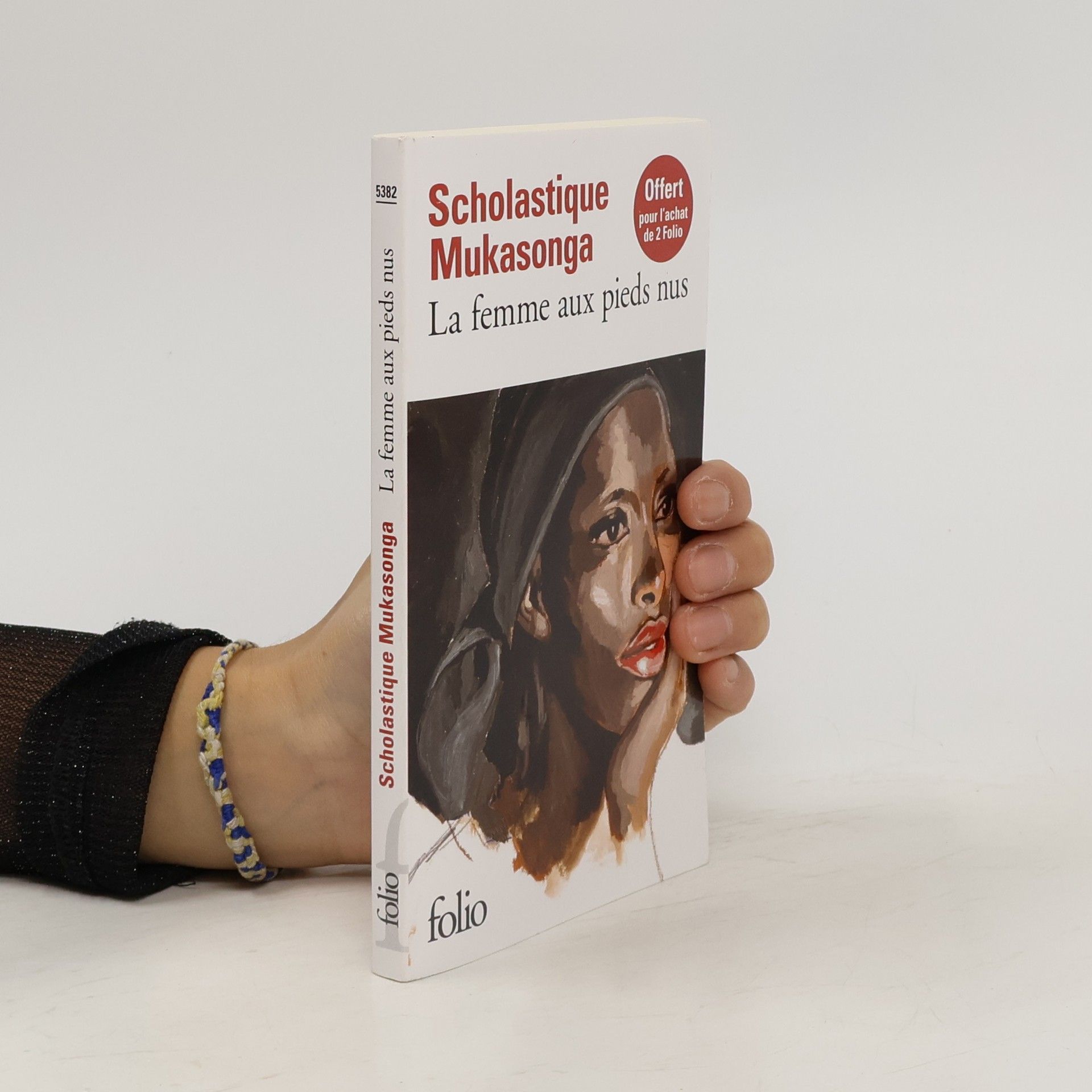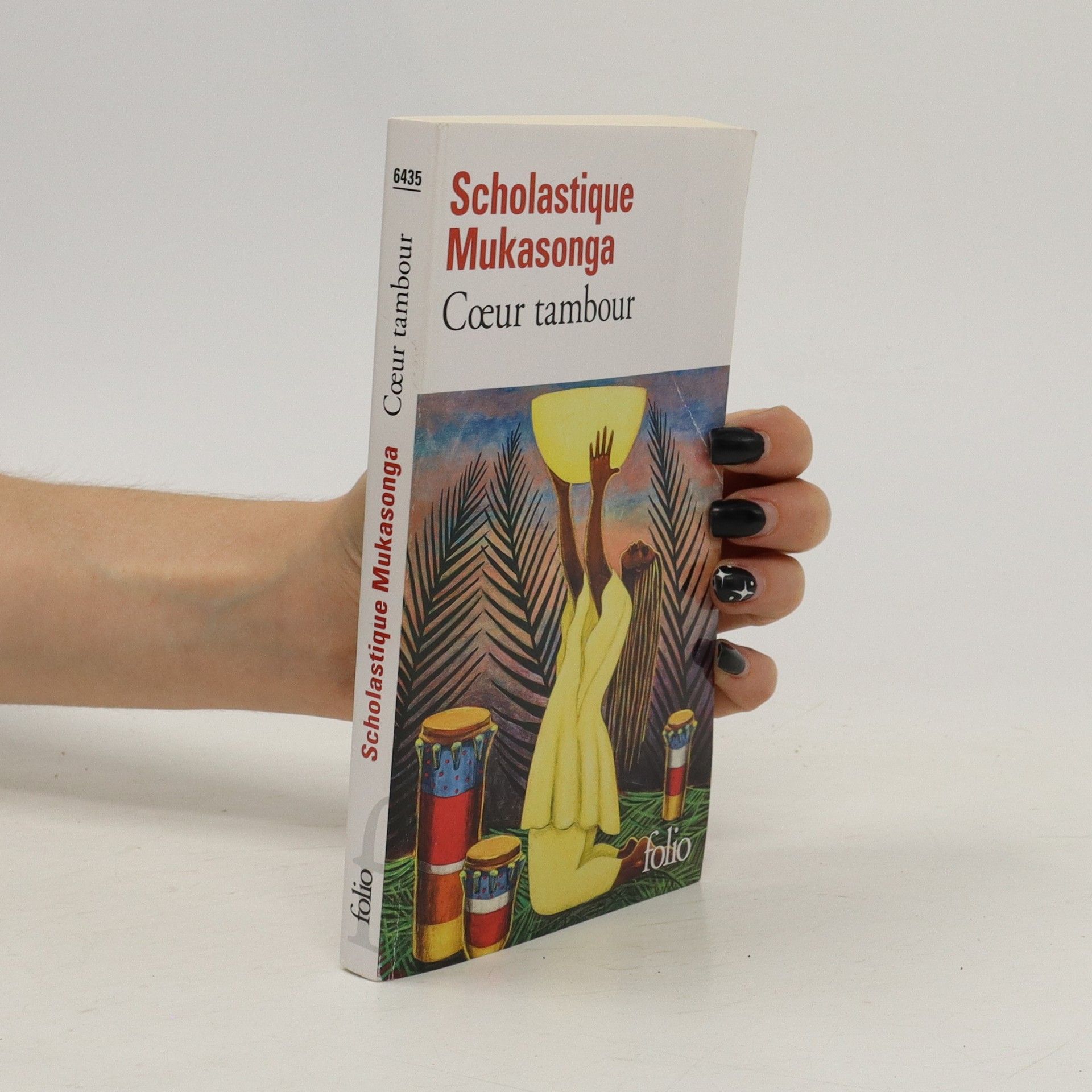Podtitul: Strhující příběh pronásledované ženy z období rwandské genocidy Kniha na hranici literatury faktu, v níž žena z kmene Tutsiů, jež dvakrát během svého života musela opustit domov a spolu s tisíci soukmenovců prožila etnické čistky ve Rwandě v letech 1968 a 1973, líčí průběh genocidy v zemi v 2. pol. 20. století. Autorka vypráví o dětství, kdy se poprvé setkala s pronásledováním lidí svého kmene ze strany vládnoucích Hutuů a rodina byla vysídlena do Nyamaty. Při další vlně rasových nepokojů musela rodina uprchnout do Burundi, kde ale také patřili Tutsiové k opovrhovaným a pronásledovaným. Dívka se jako jedna z mála tutsijských dívek dostala na střední školu, vystudovala školu pro sociální asistentky a díky své práci pro UNICEF se seznámila se svým budoucím manželem. Žila ve Francii, kde se snažila pracovat pro svou zemi a podobně postižené. V roce 1994 se dozvěděla, že všichni členové její rodiny byli vyvražděni hutuskými fanatiky při nejnovějším vzplanutí rasových nepokojů, při nichž bylo zavražděno na osm set tisíc Tutsiů. Na jejich památku a na paměť své rodiny zaznamenala autorka bezpráví, utrpení a tragédii svého národa jako osamělý výkřik protestu i naléhavé varování.
Scholastique Mukasonga Knihy
Scholastique Mukasongaová je autorkou, jejíž dílo se hluboce noří do traumatických zkušeností spojených s historií Rwandy. Ve své tvorbě zkoumá témata násilí, vyhnanství a identity s mimořádnou citlivostí a precizností. Prostřednictvím svých literárních děl odhaluje sílu lidského ducha tváří v tvář genocidě a ztrátě. Její styl je charakteristický lyrickou přesností a schopností přenést čtenáře do srdce prožívaných událostí.







Igifu
- 160 stránek
- 6 hodin čtení
The stories in Igifu summon phantom memories of Rwanda and radiate with the fierce ache of a survivor. From the National Book Award finalist who Zadie Smith says, "rescues a million souls from the collective noun genocide." Scholastique Mukasonga's autobiographical stories rend a glorious Rwanda from the obliterating force of recent history, conjuring the noble cows of her home or the dew-swollen grass they graze on. In the title story, five-year-old Colomba tells of a merciless overlord, hunger or igifu, gnawing away at her belly. She searches for sap at the bud of a flower, scraps of sweet potato at the foot of her parent's bed, or a few grains of sorghum in the floor sweepings. Igifu becomes a dizzying hole in her stomach, a plunging abyss into which she falls. In a desperate act of preservation, Colomba's mother gathers enough sorghum to whip up a nourishing porridge, bringing Colomba back to life. This elixir courses through each story, a balm to soothe the pains of those so ferociously fighting for survival. Her writing eclipses the great gaps of time and memory; in one scene she is a child sitting squat with a jug of sweet, frothy milk and in another she is an exiled teacher, writing down lists of her dead. As in all her work, Scholastique sits up with them, her witty and beaming beloved.
"The story of the author's mother, a fierce, loving woman who for years protected her family from the violence encroaching upon them in pre-genocide Rwanda. Recording her memories of their life together in spare, wrenching prose, Mukasonga preserves her mother's voice in a haunting work of art."--Provided by publisher
"Kibogo's story is reserved for the evening's end, when women sit around a fire drinking honeyed brew, when just a few are able to stave off sleep. With heads nodding, drifting into the mist of a dream, one faithful storyteller will weave the old legends of the hillside, stories which church missionaries have done everything in their power to expunge. Kibogo's tale is at once an origin myth, a celestial marvel, and a source of hope. And for the white priests who spritz holy water on shriveled trees, it's considered forbidden, satanic, a witchdoctor's hoax. Everyone energetically debates Kibogo's twisted story, but deep down secretly wonders: Can Kibogo really summon the rain?"-- Provided by publisher
Sister Deborah
- 200 stránek
- 7 hodin čtení
This work offers a witty and incisive examination of colonialism, blending personal memories with historical reflections. It features strong female characters and draws on archival materials to enrich its narrative. As a prominent figure in French-Rwandan literature, the author sheds light on the complexities of identity and the lingering effects of colonialism, making for a compelling and thought-provoking read.
Introducing Scholastique Mukasonga to the UK: a major international author and her brilliant and award-winning first novel.
La femme aux pieds nus
- 106 stránek
- 4 hodiny čtení
"Cette femme aux pieds nus qui donne le titre à mon livre, c'est ma mère, Stefania. Lorsque nous étions enfants, au Rwanda, mes sœurs et moi, maman nous répétait souvent : "Quand je mourrai, surtout recouvrez mon corps avec mon pagne, personne ne doit voir le corps d'une mère." Ma mère a été assassinée, comme tous les Tutsi de Nyamata, en avril 1994 ; je n'ai pu recouvrir son corps, ses restes ont disparu. Ce livre est le linceul dont je n'ai pu parer ma mère. C'est aussi le bonheur déchirant de la faire revivre, elle qui, jusqu'au bout traquée, voulut nous sauver en déjouant pour nous la sanglante terreur du quotidien. C'est, au seuil de l'horrible génocide, son histoire, c'est notre histoire." Scholastique Mukasonga.
"Personne ne savait plus trop qui était cette présumée princesse africaine appelée Nyabinghi. Son nom était venu s'échouer sur les plages de la Jamaïque en d'étranges circonstances... Le 12 décembre 1935, peu de temps avant l'invasion de l'Ethiopie par l'Italie fasciste, paraissait dans le journal Jamaïca Times un article intitulé "Une société secrète pour détruire les Blancs" : vingt millions de nègres, au nom d'une mystérieuse reine appelée Nya-Binghi, allaient déferler sur l'Europe et l'Amérique, Nya-Binghi signifiant "mort aux Blancs". Les rastas, qui adoptèrent le nom de nyabinghi, n'avaient rien de sanguinaire et, dans la torpeur bienheureuse de l'herbe sacrée, ne songeaient nullement à massacrer quiconque. Les tambours suffisaient à leur rébellion". Du Rwanda à la Caraïbe, à l'Amérique : mystères, initiations, naissance de la musique rasta, et, dans les bouleversements du monde, quand bat le tambour et le coeur de l'Afrique, un crime fondateur... Qui a tué l'inoubliable diva Kitami, surnommée aux quatre points de l'horizon "l'Amazone noire" ?...
Frau auf bloßen Füßen
- 160 stránek
- 6 hodin čtení
Die ruandische Autorin Scholastique Mukasonga erinnert sich an ihre Mutter Stefania. „Die Frau auf bloßen Füßen" ist eine Liebeserklärung an eine starke Frau, deren Obsession es war, ihre Kinder zu schützen: vor dem Verlust des kulturellen Erbes der Tutsi und vor allem vor dem gewaltsamen Tod. Es gelang ihr letztendlich nicht: Zusammen mit 36 Familienmitgliedern fiel Stefania 1994 dem Genozid in Ruanda zum Opfer. Die Autorin, einzige Überlebende, findet viele Jahre später eine wunderbar poetische, klare Sprache für die Erinnerung an das Leben ihrer Familie im kargen Südruanda, wo viele Tutsi-Familien in den 60er Jahren als Vertriebene lebten. Umgeben vom wachsenden Hass der Hutu hatte sich Stefania hier mit Stolz ein Leben in der Tradition ihrer Kultur erkämpft. Scholastique Mukasonga lässt den Alltag der Tutsi-Gemeinde mit Wärme und Humor wieder auferstehen. Sie gibt den namenlosen Toten des Völkermordes ihre Namen und Geschichten zurück und einer alten Kultur ihre Schönheit.
Das Fan-Fiction-Magazin - 1: Danke
- 160 stránek
- 6 hodin čtení
Etwas nicht zu mögen, ist einfach. Etwas zu mögen hingegen, ist kompliziert. Dann kommen wir nicht darum herum, uns auch mit jenen Seiten der Medaille auseinanderzusetzen, die uns weniger gefallen. Wir müssen mit dem Gemochten in Beziehung treten, mit ihm verschmelzen, es verschieben, es umarmen, es verändern, es lieben. Fan-Fiction wagt es, sich das Gemochte anzueignen und sich gleichzeitig vor ihm zu verneigen. Bislang gab es Fan-Fiction vor allem in eigens dafür eingerichteten Ecken des Internets. Um diesem so vielfältigen wie verbreiteten Genre endlich auch die materielle Würdigung zukommen zu lassen, die es verdient, gibt es jetzt DANKE – Das Fan-Fiction-Magazin, eine halbjährlich erscheinende Literaturzeitschrift.


